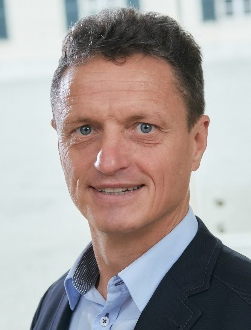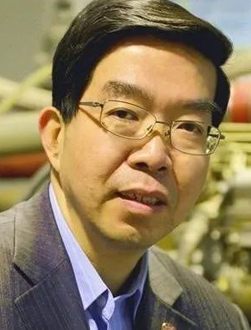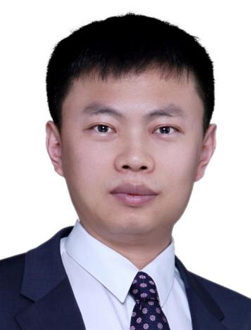Plenary Lectures

Prof. Michael Obersteiner
University of Oxford
Michael Obersteiner is the Director of the Environmental Change Institute, University of Oxford. His research experience stretches from biophysical modelling in the areas of ecosystems, forestry and agriculture to economics, finance and integrated assessment, and he works across ECI's research themes. Professor Obersteiner joins the institute from the International Institute for Applied Systems Analysis (IIASA), where he was the Director of the Ecosystems Services and Management (ESM) Program. He joined the IIASA Forestry Program in 1993 and has been leading and developing the ESM Program, which is currently the largest research program at IIASA, since 2011. Professor Obersteiner's background includes the fields of global terrestrial ecosystems and economics, having completed graduate studies both in Austria (BOKU University and Institute for Advanced Studies Vienna) and abroad (Columbia University, New York and Siberian Branch of the Russian Academy of Sciences, Novosibirsk). Under his leadership several national and international organizations, including inter alia the European Commission, WWF, OECD, and other national and international institutions have received science-based policy advice using quantitative modelling techniques. He is author of over 250 scientific papers and is a highly-cited researcher - ranking in the top 1% of citations in the Web of Science according to Clarivate research.
Plenary lecturer title: Robust climate policy instruments for climate neutrality and beyond
Abstract:To address the imminent depletion of the remaining carbon budget for limiting global warming to 1.5 degrees Celsius, I will present results from several papers proposing intertemporal policy instruments that can support a net-negative carbon economy. Our approach involves implementing carbon removal obligations (CROs), which establish the responsibility of emitters to remove carbon dioxide from the atmosphere to compensate for carbon debt. We suggest using financial stress testing rules, carbon taxes and emission trading systems to finance these obligations. To mitigate risks, such as default by carbon debtors, we propose pricing atmospheric CO2 storage through interest on carbon debt. Our analysis reveals that incorporating CROs into the global climate policy mix induces more ambitious near-term decarbonization efforts and facilitates earlier and less aggressive deployment of carbon dioxide removal technologies. We emphasize the importance of integrating CROs to achieve ambitious climate targets and ensure a fair distribution of mitigation efforts across generations. This approach addresses the need for robust climate mitigation pathways to account for uncertainties in the Earth system.

Prof. Zhen Huang
Shanghai Jiao Tong University
Academician of Chinese Academy of Engineering, Chair professor of Shanghai Jiao Tong University; Fellow of the International Combustion Institute; Vice president of the Central Committee of the China Association for Promoting Democracy, Member of the Standing Committee of the CPPCC National Committee. His research work focused on new energy and powertrain technology, combustion and air pollution control, and energy policy and strategy; has more than 300 publications in scientific journals and 3 academic works; Won the Second Prize of State Natural Science Award and the Second Prize of State Technological Invention Award; Chief editor of Frontier in Energy, and the editorial board member of Energy Sci. Eng. and Int. J. Engine Res.
Plenary lecturer title: Renewable Synthetic Fuel:Turning carbon dioxide back into fuel
Abstract:Future energy for carbon neutrality urgently needs a series of disruptive and transformative energy technologies as strategic support. In view of the energy supply, the key to energy revolution lies in zero carbonization power and zero carbonization fuel. Using renewable electricity as a source of energy supply, renewable synthetic fuels, such as hydrocarbons, alcohols or ether fuels, can be produced by reduction of carbon dioxide, via thermal catalysis, electrocatalysis, etc. As an advanced energy storage technology, renewable synthetic fuel can achieve the effective circulation of carbon element. Compared with physical and electrochemical energy storage, it has the advantages of high energy density, easy storage and transportation, and long-term energy storage. Using the surplus zero-carbon electricity to produce renewable fuel will entirely change the utilization pathways of energy, from traditional online “source-grid-load” to brand-new offline “source-storage-load”, which will greatly improve the utilization rate of renewable energy and the level of on-site consumption. Overall, renewable synthetic fuel is a disruptive technology which will make transportation and industrial fuels independent on fossil energy, realize net zero carbon emission and provide new solutions for energy strategic transformation and carbon neutrality goals.

Prof. Neil Robertson
University of Edinburgh
Professor Neil Robertson graduated from the University of Edinburgh and worked in FU Berlin, University of Wales and Imperial College London before returning to University of Edinburgh. He leads research on new molecular and nanomaterials for solar photovoltaics, photocatalysis, electrical energy storage materials and devices, with around 230 peer-reviewed papers in international journals. He is Fellow of the Royal Society of Chemistry (RSC) and Fellow of the Higher Education Academy. In 2014, as Director of the Scottish Institute for Solar Energy Research, he initiated and led development of the first ever Solar Vision for Scotland, launched at the Scottish Parliament in 2014. He was Energy Technology Partnership (Scotland) Theme Leader for Solar Energy 2012 – 2022; a member of the UK Solar Commission 2019 reporting on UK solar innovation; and a member of UK Solar Roadmapping exercise led by the Royce Institute 2020. He is currently President Elect of the RSC Materials Chemistry Community and has previously served as Associate Editor of RSC Journal of Materials Chemistry C, and as elected member of both Materials, and Dalton, Community Councils. He is Dean International Partnerships for Science and Engineering at the University of Edinburgh.
Plenary lecturer title: Solar photovoltaics: technologies and future prospects
Abstract:Solar energy has, by many orders of magnitude, the largest potential of any renewable energy source. To achieve a carbon neutral world it therefore must become the largest energy technology on the planet. Solar photovoltaics (PV) also offers advantages such as good performance in cities where energy demand is high, and application in rural parts of the developing world where electricity grid infrastructure is lacking. The global PV capacity has seen exponential growth over the last few decades, yet still only provides a small minority of energy supply. The lecture will outline recent technological progress in photovoltaics, including established technologies like silicon PV as well as potential breakthrough technologies like perovskite PV, and will reflect on possible future global trends and priorities. The lecture aims to be widely accessible to a general audience, without the need for prior technical knowledge.

Prof. Xian Zhang
The Administrative Center for China’s Agenda 21, Ministry of Science and Technology of China
Serving as the Director of Division of Social Affairs, the Administrative Center for China’s Agenda 21, Ministry of Science and Technology of China, Dr. Zhang Xian is also the Director of the Climate Change Committee of Chinese Society for Sustainable Development, and the standing committee member of the 1st Session of the Youth Federation of central Party and State institutions. Dr. Zhang Xian has been selected for the National High-Level Talents Special Support Program and the Ten-Thousand Program for Young Talents, listed among the Top 2% of the World’s Top Scientists (released by Stanford University), nominated for the Eni Award and won multiple provincial and ministerial awards. Over the past few years, Dr. Zhang Xian has been dedicated to the strategic research on major issues in the field of climate change and low-carbon technology development, meanwhile committed to promoting the development of CCUS technology in China and technology transfer South-South cooperation. A series of consultancy reports authored by Dr. Zhang Xian have been adopted by the General Office of the CPC Central Committee and the General Office of the State Council, and many of them were approved with comments by the Party and State leaders. Additionally, as the State representative, Dr. Zhang Xian has done a spectacular job in participating international climate change negotiations and multiple cooperation mechanisms, and conducted extensive cooperation with international organization and institutions. Based on his research and management experiences, Dr. Zhang Xian has published more than 80 papers and 20 books, taken a lead or participated in more than 40 national and provincial/ministerial research projects, as well as a number of international bilateral and multilateral cooperation projects. He has been engaged in organizing the research on The Roadmap for China’s Carbon Neutrality Technology Development, taking the lead in compiling The Roadmap for China’s Carbon Capture, Utilization and Storage Technologies, and the lead author of the CCUS technologies assessment chapters of China’s 3rd National Climate Change Assessment Report, China’s 4th National Climate Change Assessment Report and Opportunities for Hydrogen Production with CCUS in China.
Plenary lecturer title: Prospect on CCUS technology development under the carbon neutrality goal
Abstract:Carbon dioxide capture, utilization and storage (CCUS) technology is an indispensable part of China's technology portfolio to achieve the goals of carbon peak and carbon neutrality. It can not only achieve near-zero emissions of fossil energy utilization, but also promote deep decarbonization of industries that are difficult to reduce emissions, such as steel and cement. Moreover, it is of great significance to ensure the safety and flexibility of the power system under the carbon constraint condition and offset the difficult-to-reduce greenhouse gas emissions. CCUS technology has developed rapidly in China and already has the engineering capability of large-scale capture, utilization and storage, which is equivalent to the international development level. The capture technologies are transitioning from the first generation to the second generation; transportation technologies has been developed from the traditional tank truck/ship transportation mode to the land and submarine pipeline transportation mode; utilization technologies expand from the early geological utilization to chemical and biological utilization; CO2 storage has also achieved increasing attention. However, CCUS in China still lags in project scale, technology integration, submarine storage and industrial applications, facing challenges such as high technical cost, urgent deployment needs, poor matching of source and sinks, and lack of business model and incentive policies. In the future, China's CCUS technology development goal is to build low-cost, low-energy, safe and reliable technology systems and clusters, it is suggested to strengthen the advance deployment of CCUS technology research and development, promote the whole chain integration demonstration, accelerate the pipe network and infrastructure construction, and improve the fiscal and tax incentive policies and laws and regulations system to promote the commercial development of CCUS.



 iccn-2023.sjtu.edu.cn
iccn-2023.sjtu.edu.cn +86 21 80160860
+86 21 80160860 iccn2023@sjtu.edu.cn
iccn2023@sjtu.edu.cn loading......
loading......